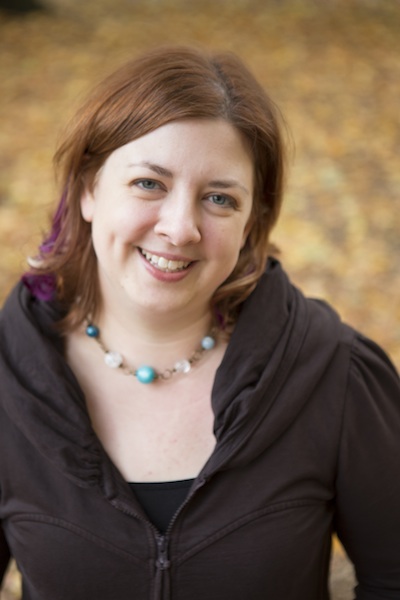Loquacious: "Rubble" by Annie Penfield
 Wednesday, August 29, 2012 at 11:30PM
Wednesday, August 29, 2012 at 11:30PM 
Loquacious: full of excessive talk : wordy (www.m-w.com)
Loquacious is a "wordy" series that revels in language.
In this essay, written after Hurricane Irene devastated portions of Vermont in 2010, writer Annie Penfield meditates on the word, the idea, and the reality of "rubble." I love Annie's writing because she uses language to pull readers into her world ― inside and out. When I read her work, I feel like I'm seeing the world through her eyes and riding (slipping, sliding, swirling) around in her thoughts. She combines her depth of spirit and introspection with a deep connection to the land, moving seamlessly from the internal to the external and back again, until there is no distance between the two. She is one of my closest friends from grad school, and I recently had the joy of spending time with her (and recent Loquacious contributor Laurie Easter) in a St. Benedictine monastery. There was plenty of laughter, great conversation, and, of course, some reading and writing. There also may have been lemon wedges, a small container of salt, and an unspecified amount of tequila. I hope you enjoy this essay as much as we enjoyed that tequila I do.
Rubble
By Annie Penfield
Rubble: sounds like bubble but also a rhyme with trouble. It means wreckage and fragments of a broken building. There is no hint of creation from rubble; hope can perhaps be derived from the sound of the word―rubble that bounces on the tongue upbeat like a child sounding b-b-b pushing a small matchbox car along a small dirt road through debris, through a village that has sprung from imagination.
The flood scrambled Vermont valley towns: claiming houses and herds, bridges and roads. The roads are all different after the flood. The river ate them. What is left is narrow and bumpy and crumbled at the edges. Now we have a single lane and a stoplight when before we were accustomed to just soaring down the hill.
With the stoplight, we must wend one at a time through the blind curves. Debris and uprooted culverts line the roads now stripped of pavement. What had churned alive in roiling waters now sits abandoned along the single-lane road.
I am waiting for the light―the one that tells me to go. Move. Move through the sorrow. I thought I was sad for the flood damage but I think I am sad about the unlived life. About possibilities I see for myself that seem scattered along a roadside, potential not yet pursued.
I saw the river course and claim a new path, then return to its banks. Like I see a dream but let it slip under everyday routine. My passion for other possibilities slips into the darkness of deep waters, like the coffins pulled from the graveyard, drawn in by the currents of the Irene-fueled river that ripped on land and houses and livestock. The landscape is different now. That graveyard is empty. I sit at a light and wait for change.
Along the road, long grasses flattened, an imprint of the flood. The water leapt its banks, flowing wild like fantasies across fields, and spreading like a prayer over open lands. Turning a corner, the river threw up its rocks and sticks. Piles of asphalt but not salvaged for the road. New fill will arrive to make the roads fresh and easy, but now I travel the rough, crude and functional.
The caskets traveled the undertow. They found traction to move and to be cast about. Twenty bodies have been found down stream and the struggle to reassemble them and the re-internment begins. To sit and wait for change, to watch the rivers run, to ignore the possibilities, will I dull to my current life, like that graveyard that has lost its souls.
I no longer believe in salvage. I want to lay a new path in the rubble and stumble my way into a future less certain. I let the waters rest within the familiar banks.
I am sitting at the light, waiting for change. Waiting to be released down the single road of rubble that follows the curves in the river.
** ** **
 Annie Penfield lets her words ― and her children and horses ― run away with her. She lives in Vermont with her husband, three children, two dogs, five horses, and one little donkey named Dazzle. She owns Strafford Saddlery and has her MFA from Vermont College of Fine Arts. She is working on a memoir about her time on an Australian sheep station. Recently, her essay "The Half-Life" won the 8th Annual Fourth Genre Steinberg Essay Prize. It will be published in the February 2013 issue of Fourth Genre.
Annie Penfield lets her words ― and her children and horses ― run away with her. She lives in Vermont with her husband, three children, two dogs, five horses, and one little donkey named Dazzle. She owns Strafford Saddlery and has her MFA from Vermont College of Fine Arts. She is working on a memoir about her time on an Australian sheep station. Recently, her essay "The Half-Life" won the 8th Annual Fourth Genre Steinberg Essay Prize. It will be published in the February 2013 issue of Fourth Genre.
 loquacious
loquacious 

Reader Comments (2)